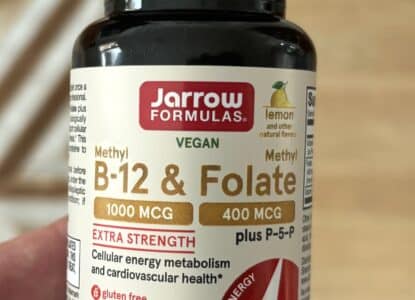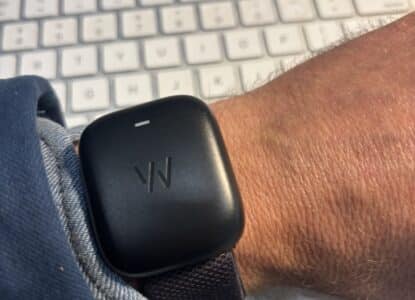I Tried Genomelink – Here is My Review
Article at a Glance
- Genomelink is a genetics company based in Berkeley, CA, that has an impressive roster of investors and founders.
- The company scores raw data from 23andme, Ancestry, and My Heritage DNA.
- Free and premium plans are available.
- Genomelink makes it easy to delete raw data from their server.
Genes Mentioned
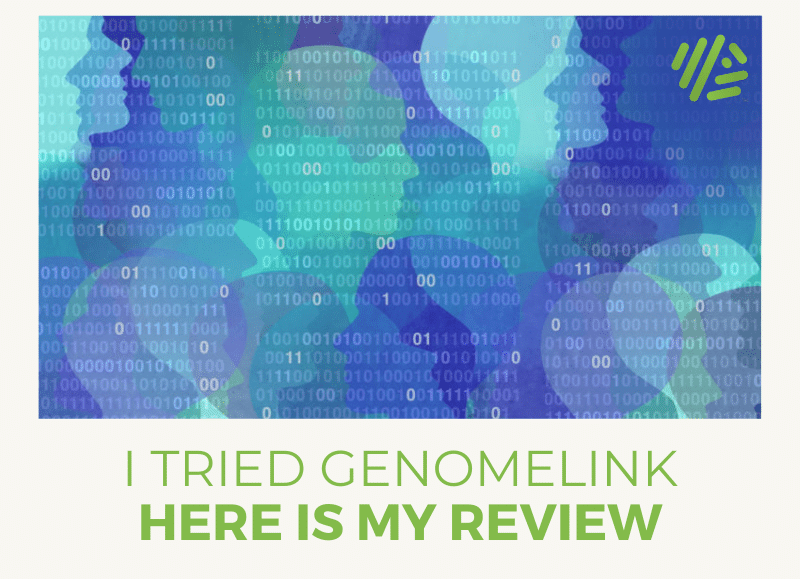
Contents
Genomelink is a genetics company based in the Bay Area that aspires to be the “app store” for genetics.
Millions of people who have undergone genetic testing from companies like 23andme. Genomelink is designed for consumers who want to extract more information from their raw genetic data than the big providers offer.
To test the product, I uploaded my raw data file from 23andme to the Genomelink app.
Users can upload raw genetic data to get access to hundreds of health reports through Genomelink, with these providers supported:
- 23andme
- Ancestry
- My Heritage
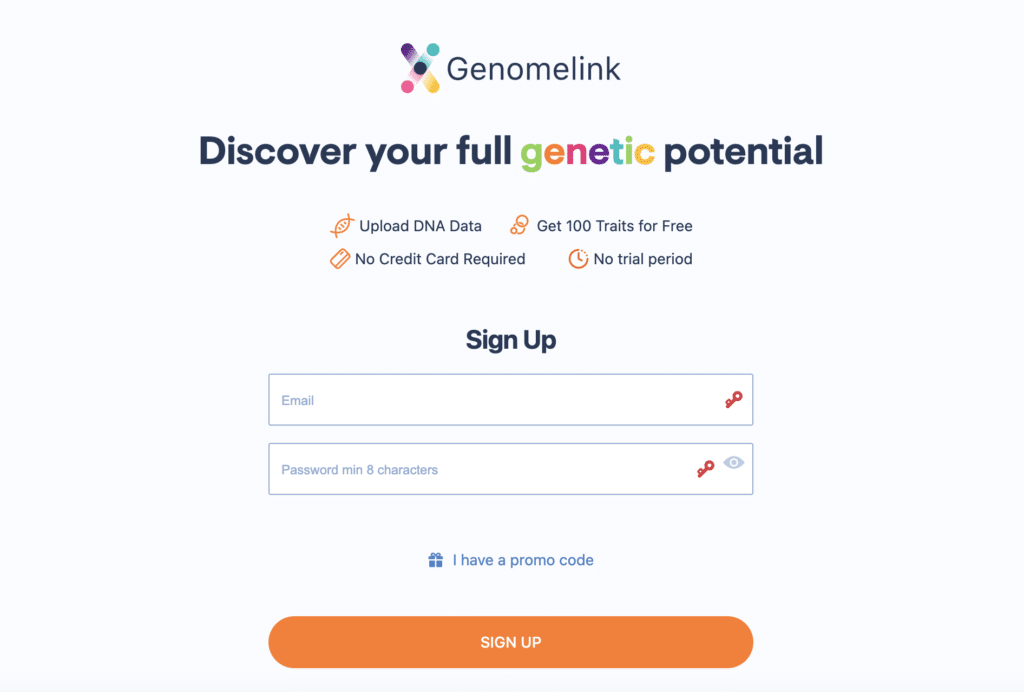
Genomelink has access to the 23andme API
23andme used to have a publicly available API, but in 2018 changed their policy to only allow a select number of trusted providers access. Genomelink is one of those providers, which means users can login to 23andme directly from Genomelink’s site. This removes the step of having to download a .txt file from 23andme.
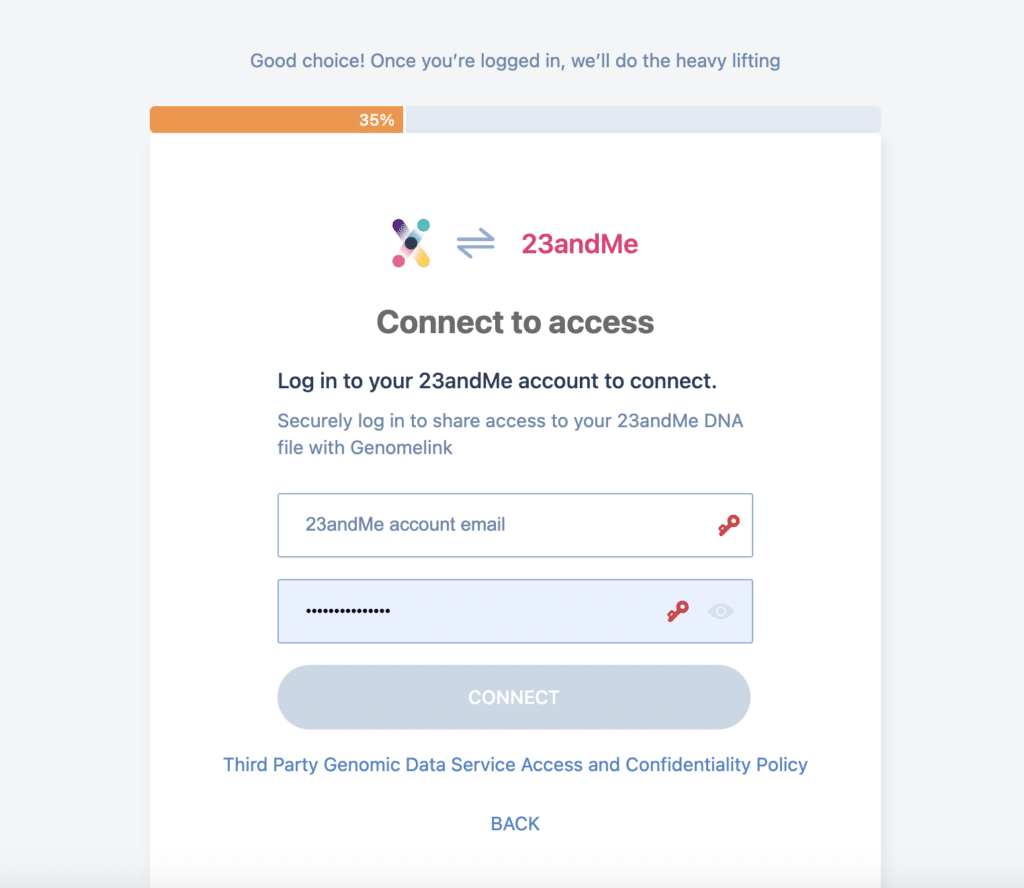
Why I tried Genomelink (and why I trust the company)
As the founder of Gene Food, a genetic company focused on nutrition, I am always interested in offerings from companies in the industry.
I tried Genome Link despite some rough online reviews because the company has a well-respected leadership team with impressive industry experience. It may not mean much to some consumers, but Genome Link is funded by Y Combinator, a well-known startup incubator that has funded iconic names in tech, including: Stripe, Airbnb, Coinbase, Instacart, and many others.
For me, Genome Link’s association with Y Combinator adds a level of trust that makes me comfortable with the platform.
It’s hard not to be impressed with the Y Combinator directory page describing Genome Link’s team:
Tomo from M3, Inc. ($70B medical platform), Yuta from MyCode (#1 consumer genetic testing in Japan), Ken from Sony (tech & bio-info lead at a joint venture between Illumina and Sony), and Carlos Bustamante, P.I. from Stanford University. The investor and affiliates include Y Combinator (S21), Sompo (Top insurance CVC in Japan, led deals for Palantir and Noom), Sony, Berkeley SkyDeck, and StartX
I will get to the product offering next, but there is no doubt that there are people and organizations behind Genome Link that are very heavy-hitting.
This is not a fly-by-night operation, or a “scam,” as was suggested by a Reddit user.
Purchasing a mental wellness report
In order to get a feel for the products at Genomelink, I purchased a Mental Wellbeing report. The purchase process was frustrating. Rather than being taken to my chosen report, I was offered a bundle to buy the Skin health report as well. Genomelink then charged me twice for the same report, but did promptly issue a refund.
When I selected the back button to leave the upgrade page, I was finally able to access my Mental Wellbeing report.
This report needs work, I found very little value in the findings, which seemed generic. Most of my traits fell in the average range, and there was nothing substantive I took away from the report.
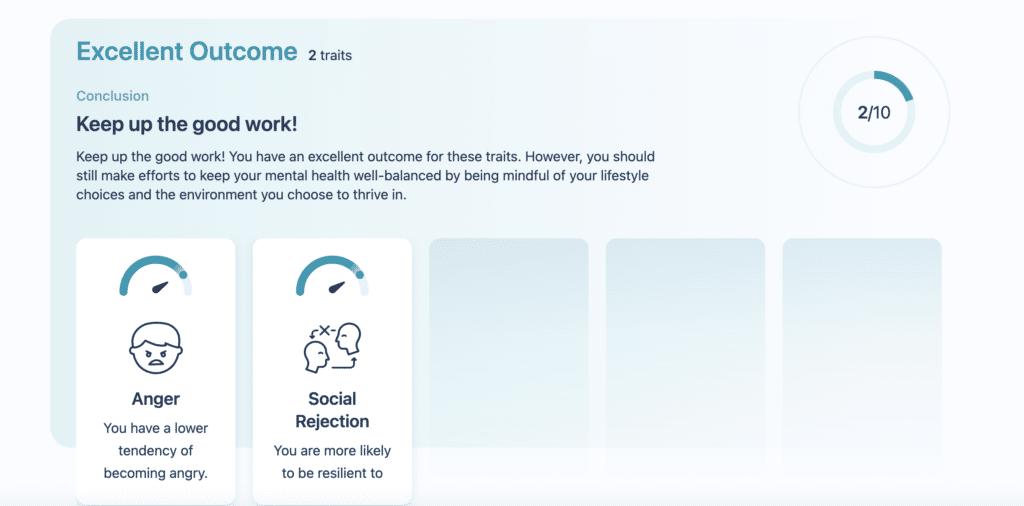
Overall, the free Personality traits offered by Genomelink were more interesting to me than was the premium Mental Wellbeing report, which cost $34.
Reports like Mental Wellbeing or Nutrition Advice can be purchased a la carte, or users can subscribe for a Premium membership which costs $14 per month and delivers new traits weekly.
What Genome Link does well
Free reports (pro and con)
Genomelink offers some basic ancestry and health data for free.
Users who upload raw genetic data can see 50 reports, labelled “Traits” without subscribing. The free reports offered by Genomelink are basic, but a good starting point for consumers just getting started with their genetic data.
Highlights of free reports include:
- Vitamin B12
- Vitamin D
- Memory
- Extroversion
- Fear of Pain
- Facial Wrinkles
- Reward Dependance
- Hearing Ability
- Peanut Allergy
Users can view a full list of Genomelink traits, here.
I have added a screenshot from my Genomelink free report, below. For those interested in micronutrients in particular, Genomelink’s free upload option might be attractive.
However, when I checked the B12 report against the markers we use to evaluate B12 risk at Gene Food with Sandeep, we found some important markers missing, and the studies and SNPs cited were mostly from research done in Asian populations.
My wife is Japanese, and our children are multi-racial. I welcome including studies from Asian populations in the scoring, but Black and Caucasian customers might not find as much value, especially with genes like MTRR (which plays a well-documented role in B12 metabolism) missing from the reports.
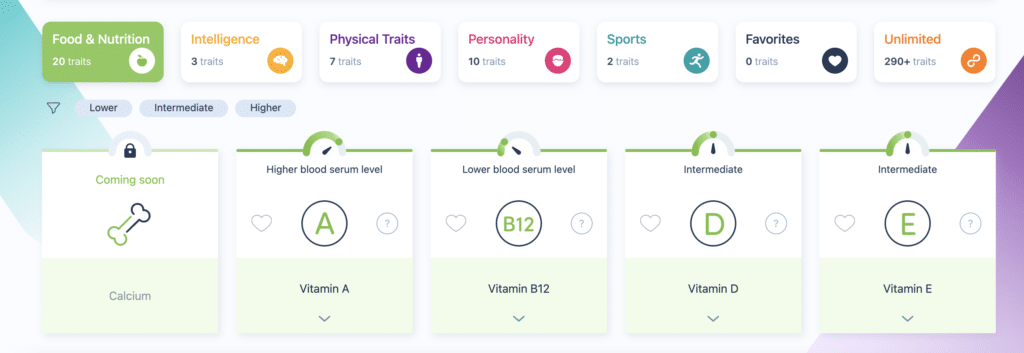
Many users will enjoy the free personality reports
The Genomelink app doesn’t take itself too seriously. The product seems as though it was designed to be fun.
For example, the free plan offers interesting personality traits, such as a spectrum for extroversion vs. introversion.
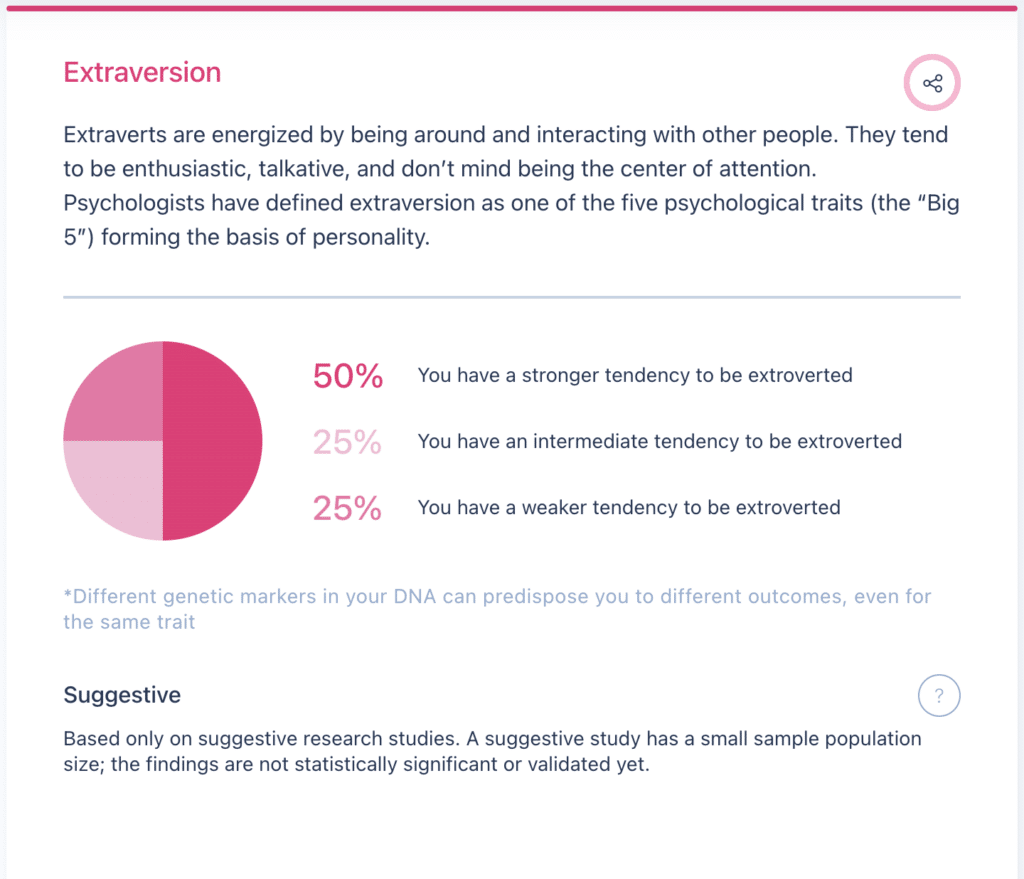
My personality classification of “Extrovert” is accurate. The fact that the “extrovert” finding was based on only 4 SNPs is disclosed with the “Suggestive” label. Genomelink does a nice job being transparent about their level of confidence in a given result, which was another factor that reinforced the trust I have in the founding team.
I also found the Memory report to be interesting, with Genomelink rating the reliability of the research stronger than their Extroversion meter.
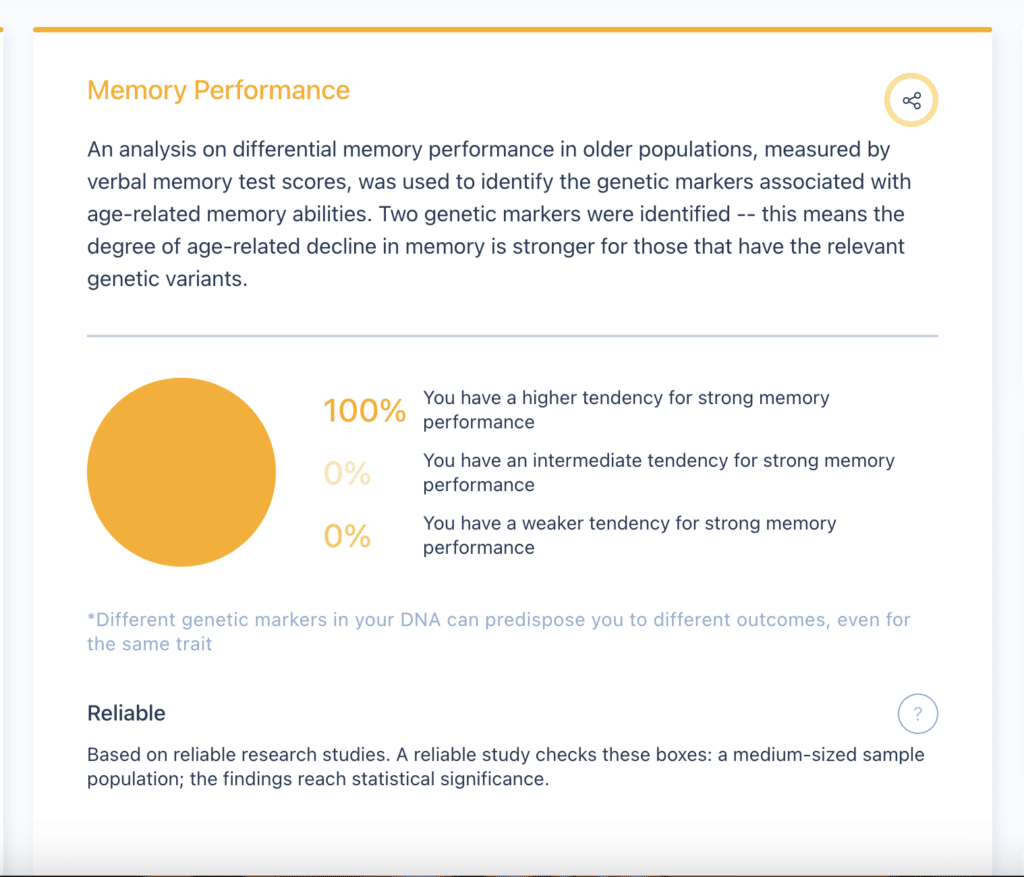
Beautiful interface
The design of the Genomelink app is well done, and easy to use.
I especially appreciate this feature because, as I write this, we are working on a re-design of the Gene Food software. It’s not easy to weave together the type of UX that Genomelink has created for their users.
Easy to delete raw data
The Genomelink app is powered by raw data from third party testing services. It is in the company’s best interest to keep a user’s raw data file active on the Genomelink server.
However, despite the incentive to keep data, Genomelink offers the easiest process for deleting raw data I have seen from any similar site.
To delete raw data from Genomelink, simply navigate to the Profile tab, and scroll to the right sidebar.
The company makes it refreshingly easy to scrub raw data after upload.
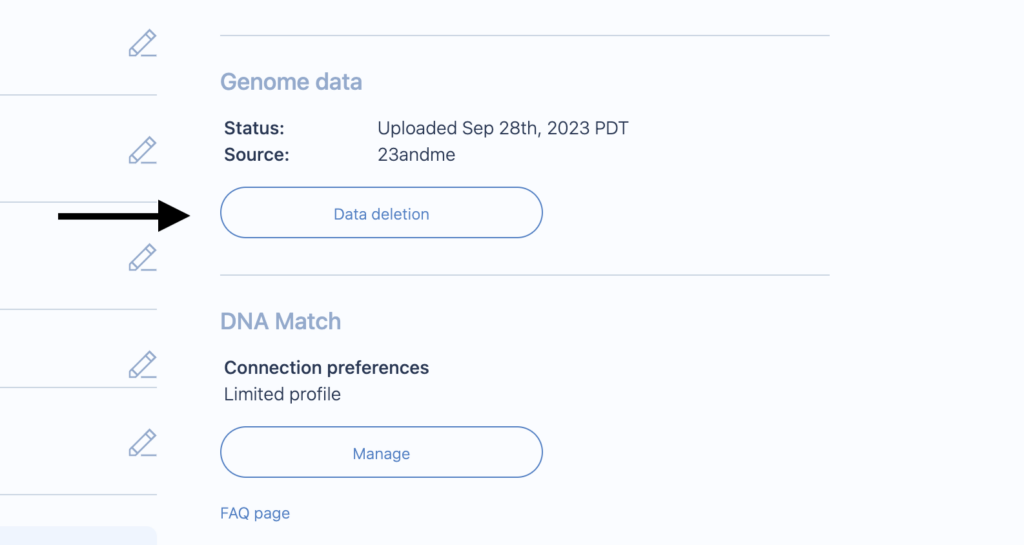
Genomelink’s limitations and challenges
Only as good as the raw data file uploaded
The biggest challenge for Genomelink is the limitations of raw data files from companies like Ancestry and 23andme.
We created the infographic below years ago to show readers the difference in data between whole genome sequencing and large scale genotyping from 23andme, which only evaluates 0.03% of the human genome.
Why is this an issue for Genomelink?
Because the company wants to publish weekly reports for users with an “app store” model, with this broad of a reach, some important SNPs will eventually be missing from the raw data files, impairing the overall score.
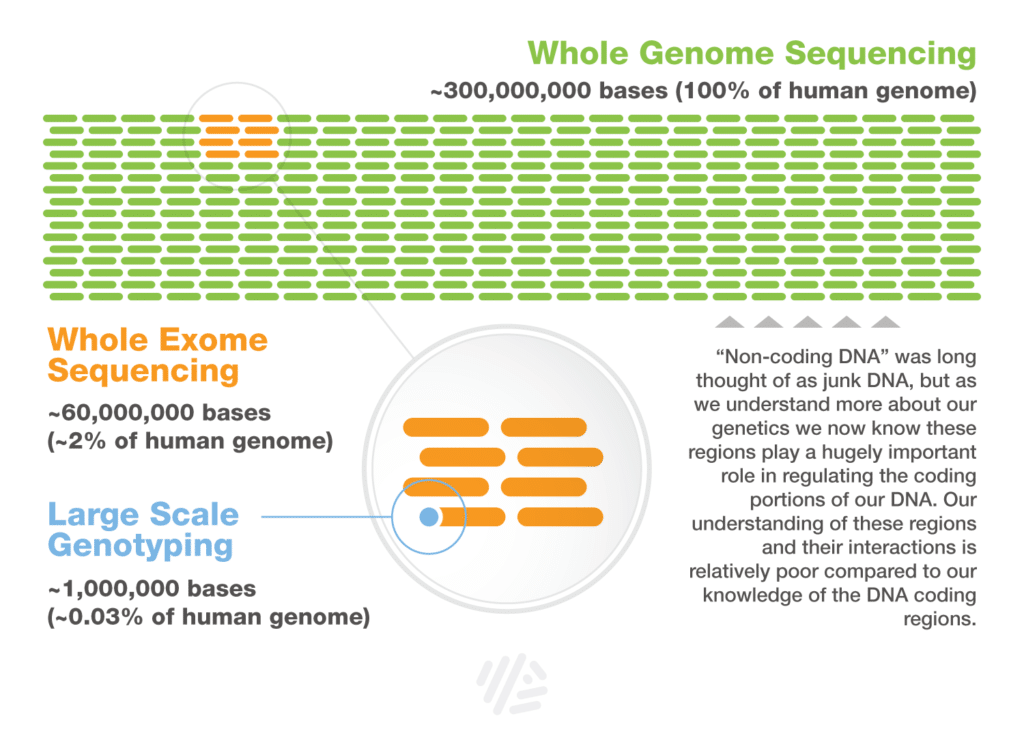
This is an issue we run into at Gene Food, and Aaron wrote a dedicated blog post on how we adapted.
For example, some 23andme versions have better coverage of histamine genes than others.
Users who upload a raw data file from a version of 23andme with fewer histamine SNPs miss some data points (23andme v5 is notorious for poor coverage). This is why we offer test kits at Gene Food, so users who want to dig deeper can get access to all of the markers they want evaluated. That, and you have to be more targeted in the reports you choose to pursue so raw data customers will get meaningful coverage.
The issue is that some raw data files don’t have the necessary markers to offer meaningful reporting on several key issues.
This will confuse some users, and I believe, is the reason for Genomelink’s bad Reddit review.
Potentially missing research
I was disappointed with the research foundation of the B12 report. Some SNPs we report on at Gene Food were missing from the reporting.
Some premium reports lacking value
To be fair, I did not subscribe to Genomelink for weekly traits. The only premium product I purchased was the Mental Wellbeing report. However, I found the free personality traits more valuable than the premium Mental Wellbeing report. I would not recommend the Mental Wellbeing report.
I am sure the level of quality varies from product to product (just as restaurants have some excellent, and some average entrees).
The Bottom Line
The bottom line for me with Genomelink is app has potential.
I like the model of delivering weekly reports to users. Presenting information this way is more digestible than the data dumps offered by some providers. We offer new reports and new genes monthly at Gene Food for premium users, so I understand the business model.
Next, Genomelink is not a scam. The team behind the company is impressive and experienced.
In my view, users who have been disappointed with the offering seem frustrated by the limitations of their raw data files, which is an issue Genomelink could do a better job of highlighting because they are overall very transparent.

